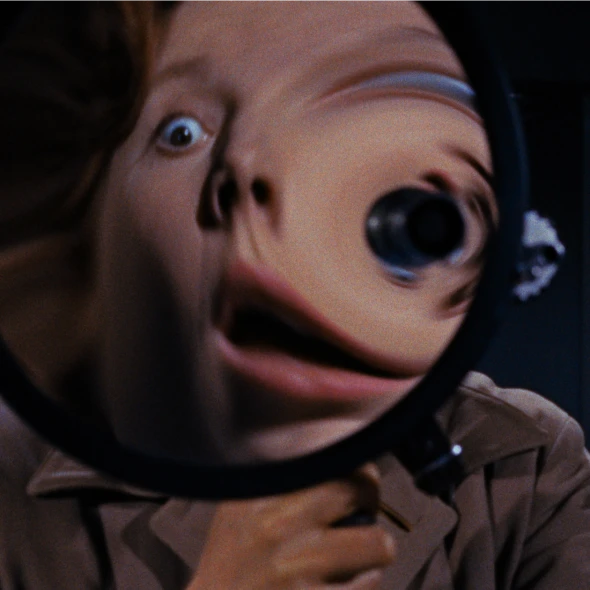
Theda Hammel's social handle is @majortransceleb, for reasons that should be self-explanatory. But with her film debut, the skewering screwball comedy Stress Positions, the multi-hyphenate actor, writer, director, editor and musician officially announces herself as a major talent.
Hammel's road to directing her first film has taken her through many a creative discipline: She studied music technology and sound engineering in school with aspirations of becoming a theater director. "But that was never really going to happen," she says now. ("Theater is actually not a good synthesis of those two tendencies.") Instead, she pivoted to the cult-favorite podcast NYMPHOWARS, which she co-hosts with comedian Macy Rodman.
"Directing movies emerged in a pretty linear way out of doing the radio show," she explains. With the podcast, "You're creating a mood in a cinematic way. And movies are just that, but more expensive. So, at the end of the day, it does feel continuous with that, but it wasn't my dream. I feel almost guilty about it, but it is really, really satisfying."
In Stress Positions, Hammel and John Early star as queer millennials unraveling in lockdown during the summer of 2020. Qaher Harhash plays Early's character's nephew, a 19-year-old Moroccan model named Bahlul who is bedridden with a broken leg. Hammel co-wrote the film with Faheem Ali, edited it with Erin DeWitt, and composed the score. Stress Positions debuted during this year's Sundance Film Festival.
"People only say one of two things to you: They go, 'I loved your movie,' which means they liked it or tolerated it, or they go, 'I saw your movie,' which means, 'I absolutely hated it,' Hammel says with a laugh. "This is the biggest exposure that I've ever had with anything that I've ever done, and it's very hard to gauge actually how people are reacting to it! But I have been very gratified by the positive responses and thrilled by some of the negative ones, as well. It feels real."
Below, the filmmaker shares with A.frame five movies that influenced her directorial debut. "These five are great to put into the discussion with Stress Positions."
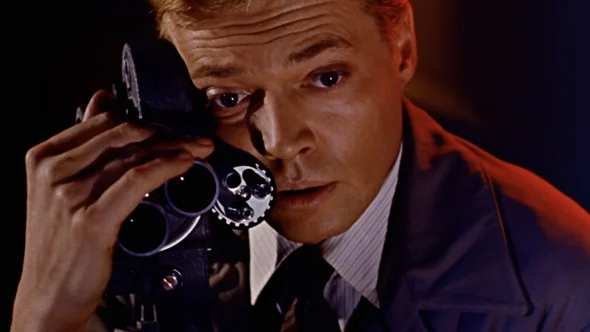
Directed by: Michael Powell | Written by: Leo Marks
Peeping Tom has an old house that's rigged for surveillance and torture, and the upper story — which is like the Coco apartment [in Stress Positions] — contains a movie theater. So, the house is a movie theater, which is a space for surveillance and a space for torture, and one that you're implicated in just by being present in a house — even though you didn't build the house, and even though you didn't install the surveillance equipment. The house being an instrument of surveillance, I think, is a great element from Peeping Tom.
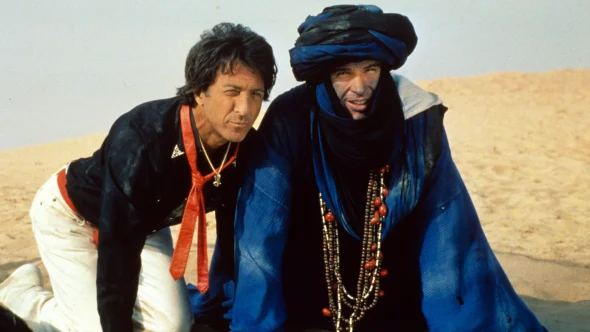
Written and Directed by: Elaine May
I think that Ishtar is a very good movie to put on the list, because it has to do with hapless, clueless Americans abroad in the Middle East, totally out of their depth, totally out of their element. It's also just a great movie by Elaine May, and it's in the same school of screwball and dialogue comedy. It's one that I did give to John in advance of the shoot. I don't know if he watched it yet, but I was like, "Watch this," because Dustin Hoffman and Warren Beatty in that movie are the sort of goony types we were going for.
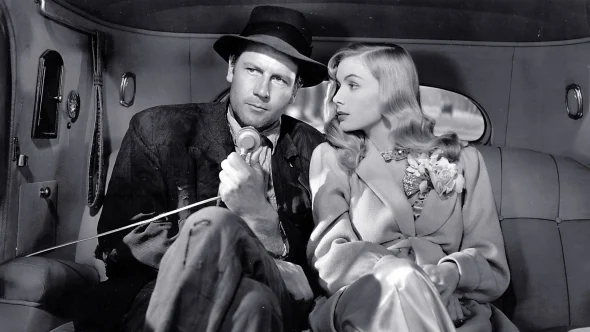
Written and Directed by: Preston Sturges
Sullivan's Travels is about the inability to penetrate into the real world. The main character is a very wealthy film director who wants to encounter the real man, who wants to go out in the middle of the Depression and see what's happening out in the world. It explores this idea of where you are and then the world that you can't actually encounter at all in a very brilliant way, because every time he goes out, he's always cushioned. He can never really encounter the world, because there are always helpers around making sure that he doesn't get into any trouble, that nothing ever really happens to him. But something does happen to him.
In Stress Positions, the character of Bahlul's mother is adamant about seeing the world. She strides out into the world in a very deliberate way, but I'm personally very skeptical as to whether she encounters that world, especially the area of it that she's traveling in, which is the Middle East.
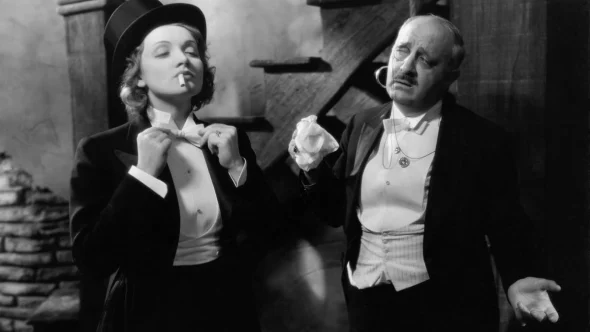
Directed by: Josef von Sternberg | Written by: Jules Furthman
This is a little bit of a cliché, but Morocco with Marlene Dietrich, just because it takes place in a Morocco that doesn't actually exist. It's an activation of an idea of someplace that doesn't actually exist in fact. It's a sort of fantasy. Combining that with Sullivan's Travels, you might say that the character is wandering in what she thinks of as the real world but is not encountering it, because she's lost in a Middle East of her own imagining. It's a very colorful place for her, but it's not one that really connects with reality in a serious way.
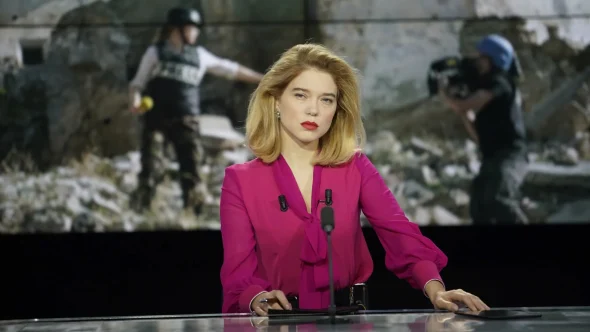
Written and Directed by: Bruno Dumont
France is a movie that is germane to Stress Positions but was not an influence on it, because I saw it after I had written the script. I'd never seen a Bruno Dumont movie before, but on Criterion, it had a big, beautiful picture of Léa Seydoux — and that's the whole movie! The whole movie is Léa Seydoux giving the most amazing performance I've ever seen by anybody in my entire life. And the performance is not of a person. It's just the surface of a person, and then the attempt is to animate that surface, because she is always crying. Every scene ends with her crying. So, it's like, can a non-person be activated to the peak of emotion? I think it's really amazing.
It's a very misunderstood movie, too. It's not a news satire, and it's not a media satire. It really is two things: It's an allegory, and it's a passion play, and it just happens to take place in the domain of media trash. Also, like Peeping Tom, it's designed to make you suspicious of the camera itself as an instrument of capturing or penetrating the truth. So, that is a movie that I really, really love and adore. Our movies are very different, but when I saw it, I went, "Oh, he got to all of this first." Bruno Dumont got to all of this subject matter first.

